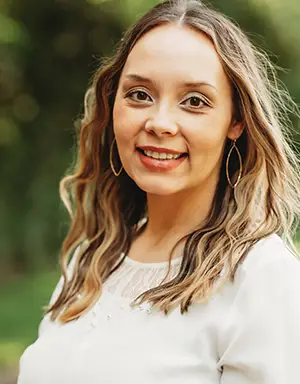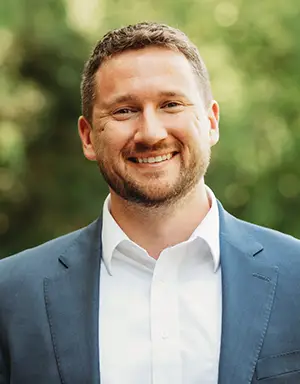Neil Craft: Hello and welcome to the James Market Clarity podcast. I’m your host Neil Craft. And today on episode 20, I’m joined by Certified Financial Planner, Ashley Walton. Ashley, how are you?
Ashlee Walton: I am great Neil. I’m excited to be here.
Neil Craft: It is a pleasure to have you with us today, and we’re very excited to get started for our listeners in November.
On episode 15, you may have remembered, we discussed a year end portfolio checkup, looking at some different ways to prepare for the end of the year. Well, as we shift to 2022 and a new year is upon us, we’d like to discuss some planning that people can do at the beginning of the year.
Ashlee Walton: Yeah, the beginning of the year is a really good time to make changes to your finances. A lot of us often go into the New Year with extra motivation to make improvements in our lives, and additionally, many people go into the New Year with a new raise or bonus.
Neil Craft: Okay. So what’s a proper starting point, you know, for somebody who’s listening that would maybe fall into that category; they’re motivated or charged up to put a good plan together for the year. Where should they be?
Ashlee Walton: So before you start setting goals, it’s important to really look at the big picture. Think about what’s important to you both this year, but also out into the future. Maybe you really want to take a nice vacation this summer, but you also need to start saving more for your child’s education or retirement or something that’s further out in the future. It’s easy to get distracted by the more fun or immediate goals. So it’s a really good time to make yourself think about the less fun goals. Start by organizing and prioritizing your ideas and include some of each.
Neil Craft: Totally it’s a little easier if you have a Aruba or the beach or a jet ski on your mind. So a good balance is important with planning and then what’s next.
Ashlee Walton: You should next get really specific with measurable goals, but also remember to be realistic. Maybe one of your goals is to buy a boat or a jet ski, like you mentioned. So really think to yourself, does that make sense? Do the math look at your budget, look at what you have extra and how many goals you have on your list.
Using every available dollar to buy a boat might be possible, but is it smart? Living in the now and enjoying our time here is important, but not if it ends up costing us later. So make sure you’re taking care of future you as well. If you need to increase your savings, the beginning of the year is a good time to do it.
If you want to increase your contributions by $3,000 for 2022, that’s a lot easier to achieve if you spread it over 12 months than it would be if you start later on. So start with the things that you really need to be doing, and then see what’s left for the fun stuff, and work on your budget. If you feel like you could free up some cash to use for some of the more fun things, if you find that you don’t have a lot left over for the more fun stuff.
Neil Craft: Totally. That makes sense. Now, Ashley, I think that there are folks that maybe fall into this category where they want to save more, but they don’t feel like they can afford it. Do you have suggestions for how they can budget saving?
Ashlee Walton: Yes. So if you want to free up cash, to be as simplistic as possible, you need to either spend less or make more. If you already have your budget done and there isn’t a lot to improve, another way to make it easier to increase your savings is to use a raise or a bonus. Many people get a raise in the New Year, so consider using that to add extra to your 401k. If you get in the habit of earmarking raises and bonuses for savings, if you’re having trouble funding your accounts through your regular pay, it can really be helpful.
So pretend they don’t exist when you’re thinking about vacations and cars and general expenses. But if you find that you consistently need those bonuses and raises to cover your living expenses, or to pay off credit card debt, really stop and think about whether you’re living beyond your means. Making sure you’re saving enough is important to figure out as early as possible since it really just gets harder and harder as you get closer to when you need it. And if you don’t know how much you should be saving or how much you can spend, you should find a certified financial planner professional to help you figure out what that number is.
Neil Craft: I would guess it’s easier said than done, you know, not to be too speculative here, but it’s almost human nature to really just adjust to your earnings, so to speak, you go out to eat more. The country club membership seems more feasible or attainable and, and so on. So do you have any specific tips to perhaps to maybe try to fight against this?
Ashlee Walton: Yeah. So most people don’t contribute the maximum amount to their employer plans or their health savings accounts if they have one.
So when you get a raise, pay yourself first, as they say, use those extra dollars to increase how much you’re putting into one of those plans, and that way you can keep your take-home pay about where it is, so it’s less painful.
Ashlee Walton: Exactly. The less painful it is, the easier it is for people to take action.
Neil Craft: Right. Well, what if you, you know, and I’m just creating scenarios here; what if you’re already contributing the maximum to your employer?
Ashlee Walton: Great question. Some people need to be saving more than what’s allowed to be put into employer plans each year. So this could be higher earners, or if you haven’t saved enough in the past, and you’re behind schedule, for example, sometimes you can utilize a Roth or a Traditional IRA to get some extra contributions in with a tax benefit.
But a lot of times the people that are contributing the maximum allowed to their employer plans have too high of income to contribute to IRS. Sometimes high earners might be able to do a backdoor Roth. Backdoor Roth contributions, depending on their other accounts that they have. and if so, getting money into a Roth is really beneficial for a lot of people right now. But if you can’t do IRAs, then you could always start an automatic monthly deposit into a taxable brokerage account for example.
Neil Craft: Picking on something you just said, you mentioned Roth contributions are beneficial for some people right now. Tell us more about that.
Ashlee Walton: Getting money into Roth accounts has been really popular recently because of the historically low tax rates we currently have.
So whether that’s through a Roth IRA or a Roth contribution to a 401k, which most 401ks allow, for many people, they’ll be in a higher tax bracket when they need the funds in the future. So sometimes it makes sense to pay the tax now, instead of later, when you take the distributions. Like with a traditional IRA, you won’t get the tax deduction like with traditional contributions, but qualified distributions from a Roth, including all that growth will be tax-free when the time comes for you to start pulling money out.
It’s nice to be in retirement with more than just an idea. If all your friends create taxable income, when you take distributions, it can push your retirement tax bracket even higher especially if we see tax rates increase in the future. That can lead to things like higher Medicare premiums and even risk asset depletion if you end up needing more funds to pay taxes than you had planned for. Especially when people find out that the funds that are taken out of an IRA to pay taxes are also taxed, which means you then need to take even more money out of the IRA to pay that tax, which creates even more tax, then on and on.
Neil Craft: So that balance that you see when you log into your account, it’s not always true. Right? Gotcha. So, okay. Beyond just increasing contributions, what are some other things that that people can be working on?
Ashlee Walton: I think the best thing for a lot of people is to just really get more familiar with your finances.
You can get a deeper look at your spending and savings with it. Yes, spreadsheets, or they have all kinds of different budgeting apps to see where your funds are going and why you’re working on that, review your emergency funds. Figure out how much you need for things that are mandatory; mortgage food, insurance utilities, things like that.
We usually say three to six months of essential living expenses, but sometimes it’s more depending on your personal situation, such as job security or ease of getting a similar paying job, and this should be actual cash in a savings account that you don’t use for anything. If it’s applicable to you, another goal for the New Year could be paying down debt and keeping it off.
Other goals could be reviewing your investment and insurance policies. Check your credit report, make sure your estate documents are complete and correct, check that you have beneficiaries on all your accounts and insurance policies, or maybe your goal is to make it the year that you start working with a professional for a more comprehensive look at every.
Neil Craft: Gotcha. It can definitely sound a bit overwhelming, but just trying to pull it up, bullet list those items out and check them off. Seemed like the right place to start. Yeah. I know people will hear this and wonder what they should be thinking about for their estate and beneficiaries, since this is a familiar area for a lot of people, do you have some basic advice for people to at least start thinking about when it comes to their estate and beneficiaries?
Ashlee Walton: Yeah. So it’s a pretty complicated area. And I know that we’ll have much more education on this in the future now that we have a designated estate planner, but yes. So, for just the most basic suggestions, you need a estate documents and you need to make sure you have beneficiaries properly named on all of your assets.
So at a minimum, the documents an attorney will include are a Will, a Durable Power of Attorney, a Medical Power of Attorney and a Living Will. If you have minor children, you need to make sure your will includes guardianship designations for who you would want to raise them in your absence, and if you have a more complicated financial situation, or if you want to pass inheritance to your heirs with specific directions, such as age requirements, then you likely need a Trust.
So here in Ohio, another document that you can have, it’s called a Transfer on Death Affidavit, and the attorney can prepare that and it names its beneficiary on your home, and beneficiaries can be named on most things. And this helps ensure that your assets are passed along in the amount you want to, the people you want.
If you pass away without beneficiaries on some of your assets, those assets have to go through probate court before passing to your heirs. And this is when the Will comes in handy. So people so often think a Will allows you to avoid probate, but a Will is actually only used in probate court. It’s like directions for probate court for how your assets that didn’t have a beneficiary will be distributed. Okay. Occasionally there’s a benefit of probate, but generally people want to avoid giving their heirs this extra hassle when they pass. In my experience, the places that people forget to name a beneficiary the most are either their bank accounts and their home or their cars.
Neil Craft: Awesome. Ashley, thanks so much for being with us today. Do you have any final thoughts for our listeners or anything that you’d like to wrap up with?
Ashlee Walton: Yeah, I know it’s only the end of January, but remember that tax season is right around the corner. So start gathering things such as medical or business expenses, your charitable contribution details, and you should start getting tax documents here in just a few weeks.
If you plan on making IRA contributions, make sure you have those funds ready to go. When you go meet with your tax preparer and avoiding last minute, scrambling should always be a goal.
Neil Craft: Excellent. Well, thank you again. We really appreciate your time and your insights, Ashley. Thank you.
Ashlee Walton: No problem.
Neil Craft: If you have any questions about financial planning or our Market Clarity podcast, please visit us at www.jamesinvestment.com for more information.



